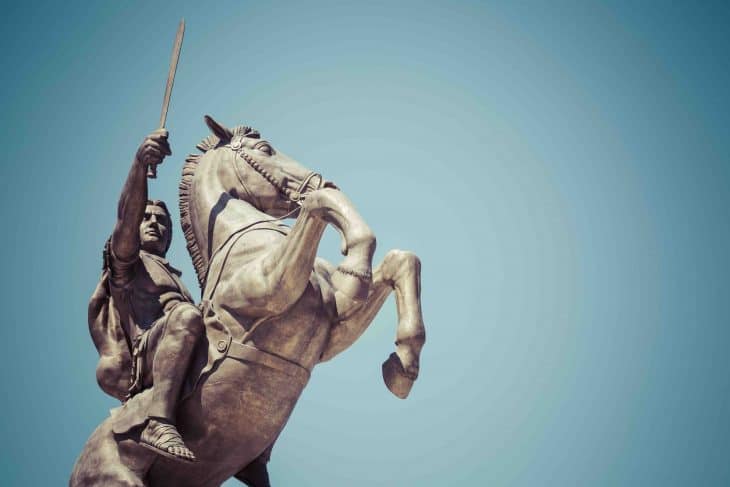
Few people have left their mark in history the way that Alexander the Great did. Despite living a short life, he was able to build an empire that stretched across two continents, leaving a legacy that we could enjoy reading about thanks to documented Alexander the Great facts. Greatness was indeed in Alexander’s blood. Can you imagine, the world’s most successful and the most famous military commander was born as the son of a Macedonian king?
Alexander was raised in a strict and disciplined climate to prepare him for leadership. After inheriting the throne of Macedon at the age of 20, he embarked on a decade-long conquest, conquering the eastern Mediterranean, Egypt, the Middle East, and parts of Asia in a remarkably short period of time. However, he wasn’t able to overcome China. He wasn’t even aware that China existed! But that does not make him any less great. If you are in need of more proof, can you believe Alexander the Great once managed to make an entire army surrender without a fight! That is no fictional tale, for it is included in several lists of Alexander the Great facts.
Moreover, he was a fantastic military commander, as well as a great speaker and leader. How was he able to bring forth all that? Historians say Alexander inherited his mother’s beauty and wit and his father’s ambition and military knowledge. Alexander made such a huge impact in history that many military academies today teach his tactical techniques and methods. Learn more about this amazing man by checking out our list of the top 50 Alexander the Great facts.
- Alexander the Great became King of Macedon at the age of 20.
- He later conquered Persia in a campaign that lasted 10 years.
- At the time of his death, Alexander’s empire stretched over 5.2 million km² of territory.
- He was only 33 years old at the time when death came for him.
- Greeks and Macedonians would continue to control parts of his empire for up to 300 years after Alexander’s death.
- Alexander the Great’s mother, Olympias, gave birth to him on either July 20 or 21, 356 BC.
- The Greek philosopher Aristotle served as Alexander’s tutor in his youth.
- Alexander fought his first war against Thracian rebels at the age of 16.
- His father King Philip of Macedonia died by assassination in 336 BC.
- Alexander began his campaign against the Persians in 334 BC.
- He reached Syria in 333 BC and Egypt in 332 BC.
- By 329 BC, Alexander had completed the conquest of Persia.
- In that same year, Alexander invaded India.
- Alexander returned to Persia from India in 324 BC.
- He finally died in Babylon a year later in 323 BC.
- Alexander’s titles included Pharaoh of Egypt and Lord of Asia.
- After King Darius III’s death, Alexander the Great also claimed the title of Great King of Persia.
- Alexander never lost a single battle in his life.
- Modern military academies continue to teach and study Alexander’s tactics today.
- In addition to a king and a warrior, Alexander also knew how to play the lyre.
Legends surround the birth of Alexander the Great.
The Greek biographer Plutarch claimed that Alexander’s mother dreamed that lightning struck her womb during her pregnancy. The legend goes on to claim that the lightning strike started a fire that burned far and wide before dying out. Another legend goes that Alexander’s father dreamed himself stamping his wife’s pregnant belly with a lion seal. Plutarch interprets these dreams as pushing a claim of Alexander’s divine descent, with Zeus as his true father. Having said that, Plutarch and his peers believed that Olympias deliberately spread the legends. A strange but true example of mystifying Alexander the Great Facts.
Several accounts exist describing Alexander’s actual appearance.
Plutarch based his descriptions on Alexander from sculptures and official documents dating back to Alexander’s time. According to Plutarch, Alexander had fair skin, warm eyes, and a habit of tilting his head to the left. The Alexander Romance also claims that Alexander had heterochromia, with one blue eye and one brown eye. British historian Peter Green claims that Alexander was very short even by Macedonian standards, but had a strong and stocky build. He also made himself stand out by going clean-shaven, where other Macedonians grew beards. The historian Joann Fletcher also claims that Alexander had blonde hair.
Alexander’s parents and experiences constantly shaped his character during his life.
Alexander inherited a competitive streak from his father Philip. In fact, he once admitted fearing Philip becoming so successful that he would have nothing left to do once he became king. Because of his mother, Alexander developed an ambitious personality and a sense of destiny. Later in his life, his great achievements fed into his ambitions, with Alexander wanting to conquer the world before his death. The death of his best friend, Hephaestion, may also have fed into his megalomania, which ultimately caused him paranoia.

Alexander met Bucephalus at the age of 10.
The horse originally came from Thessaly in Greece and was offered to Philip for 13 talents. However, the horse proved untameable that Philip tried to have it sent away. Alexander, however, managed to tame the horse, realizing the animal’s apprehension was caused by its own shadow. He named the horse Bucephalus (ox-head) due to the white mark on the animal’s forehead.
A legend claims that Philip told Alexander to think bigger than Macedonia, as taming Bucephalus proved their homeland too small for Alexander. When the horse died from old age during Alexander’s Indian campaign, he founded a city in Bucephalus’ name, Bucephala. How’s that for interesting Alexander the Great Facts?
Alexander and his father Philip often quarreled before the latter’s death.
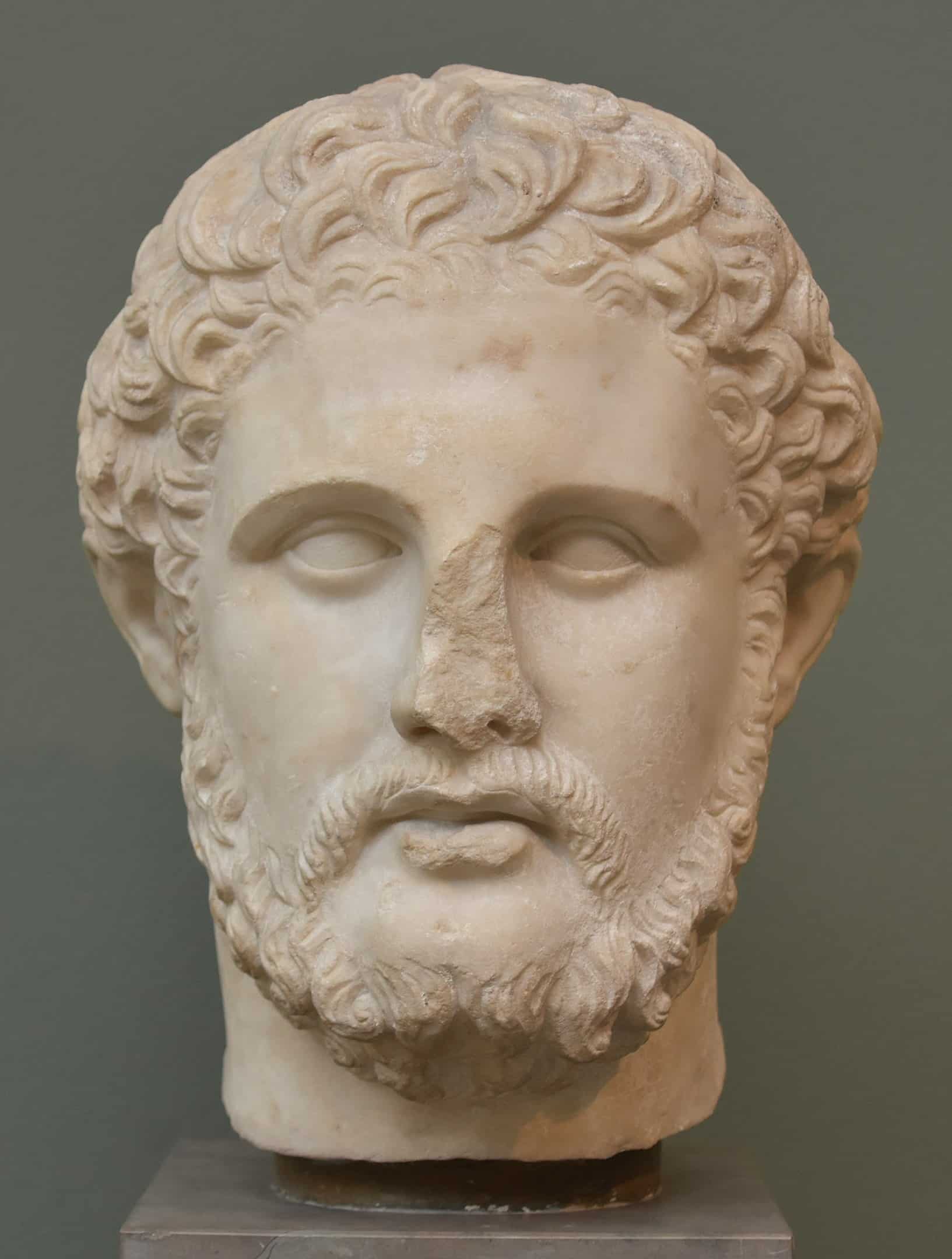
The biggest of them all involved Philip’s marriage with Cleopatra Euridice, the niece of General Attalus. If Cleopatra gave birth to a son, it’d weaken Alexander’s claim to the throne, especially with his Macedonian heritage. In contrast, Cleopatra and Philip’s son would have purely Macedonian blood. An intense argument erupted over a proposal to marry the daughter of a Persian governor to Philip’s half-brother. Alexander suspected that it was the first move to replacing him as the heir. That said, historians agree that Philip never had any plans to thwart Alexander as his heir.
Many deaths marked Alexander’s ascension to the Macedonian throne.
Here’s a grim example of Alexander the Great Facts. Philip’s own assassination proved only the first of the deaths that helped strengthen Alexander’s claim to the throne. Alexander did his own share of killing, though, to ensure his ascension. He ordered for the execution of Amyntas, his cousin, as he believed his kin was a potential rival to the throne.
He also ordered the murder of two more princes from the Lyncestis region of Macedonia. Despite his slaughter spree, Alexander intended to spare his half-sister Europa and her mother, Cleopatra Euridice. Olympias, however, had them poisoned. This enraged Alexander, and he decided to keep his mother away from politics.
Alexander had a famous meeting with the philosopher Diogenes.
While on a campaign against Greek rebels after his ascension, Alexander reached the city of Corinth. Diogenes lived in the city at the time and was known for being eccentric. He was known to have been living in a large clay jar, surviving on handouts like a beggar, and was usually naked.
When Alexander offered Diogenes anything he wanted during their meeting, Diogenes only asked Alexander to not block the Sun. By all accounts, the short exchange between the king and the philosopher delighted Alexander. Talk about strange Alexander the Great Facts.
Alexander brutally put down a Greek revolt against his power.
Here’s another grim account from Alexander the Great facts. One of his rages during his time was caused by the fact that he’d already put down an earlier revolt in the previous year. After crushing the Theban army, he ordered the city of Thebes burned to the ground.
He did, however, make a point of sparing the city’s temples, and the historic home of Pindar the Poet. This show of force and mercy terrified the Athenians, who immediately submitted to Alexander. With order restored in Greece, Alexander began his Asian campaign.
Alexander once managed to make an army surrender without a fight.
This incident transpired during the Greek revolt in 336 BC. Thessalian rebels had positioned themselves between Mount Olympus and Mount Ossa. In response, Alexander had his army marched to Mount Ossa and positioned themselves behind the rebels. The rebels, realizing their bad position, surrendered, with their cavalry forces joining Alexander’s army afterward.
Alexander famously solved the Gordian Knot early into his Asian campaign.
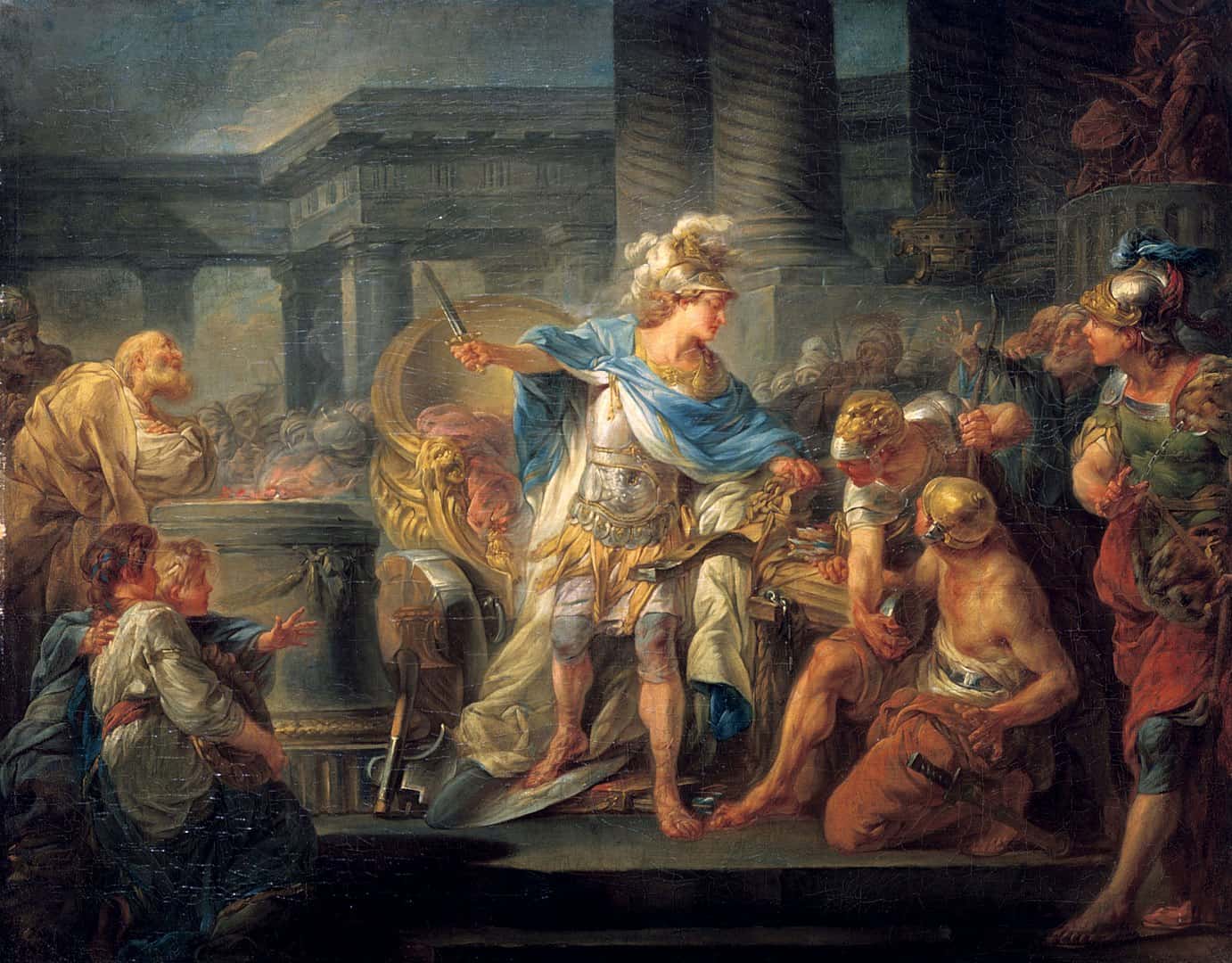
The Gordian Knot shared its name with the city of Gordium, with a legend going back to King Midas of Phrygia. According to the legend, the king tied the knot so tightly that no man could untie it. This then led to a prophecy that anyone who could untie it would become King of Asia. When he reached the city, Alexander tried to untie it but found himself unable to do so. In response, he simply cut the knot in half with his sword. Why did no one think of that!
Alexander later burned down the Persian capital of Persepolis.
Alexander took the city of Persepolis in 330 BC, after the Battle of the Persian Gate. He allowed his army to loot the city for several days, before taking up residence in the palace. Five months after his arrival, a fire broke out in the palace which quickly went out of control. Historians today are still uncertain whether or not the fire was due to an accident or was deliberately started under Alexander’s order. Ancient biographers theorized that if intentional, it was to avenge the Persian invasions of Greece in the past. However, they also note that even if he did order the destruction of Persepolis, Alexander ultimately regretted his decision.
Alexander controversially adopted some Persian customs.
Among those included the use of Persian dress and court protocols during official functions. He also temporarily adopted the use of proskynesis, an ancient Persian show of submission to superiors.
Historians today remain unclear what the proskynesis involved, with some sources describing it as a symbolic kiss on the hand. Other experts believe it involved nothing less than a prostration on the ground. Alexander’s adoption of Persian customs proved unpopular among his troops, which eventually forced his abandonment of proskynesis.
Alexander faced plots against him as he advanced further into Asia.
In 330 BC, a Macedonian named Dimnos plotted to kill Alexander, though, historians still remain divided over the reasons. The plot ultimately failed but cost not just the plotters their lives, but also some of the closest to Alexander. One of Alexander’s generals, Philotas, was executed for knowing about the plot but failing to bring it to Alexander. This was followed by the execution of Philotas’ father, Parmenion, effectively stopping any potential plots against Alexander in the future.
Later, in 327 BC, Alexander’s own pages plotted his death for his harsh discipline against their breaches in protocol. The plot again failed, resulting in their deaths, as well as that of the Greek historian Callisthenes. Historians today also remain divided as to how much of the plot Callisthenes knew and had involved himself in.
Alexander’s campaign had mixed effects on Greece and Macedonia.
During his conquest, Alexander sent back riches he won in Asia to Macedonia. This had the effect of stimulating the economy and encouraging trade in Alexander’s wake. On the other hand, Alexander’s continued campaign forced Macedonia to send reinforcements to his army.
This had the effect of depleting the kingdom’s manpower pool, which had long-term effects on its strength. In particular, historians note that Macedonia’s reduced population ultimately left it unable to resist the Roman legions in the centuries that followed.
Alexander treated his Indian conquests honorably.
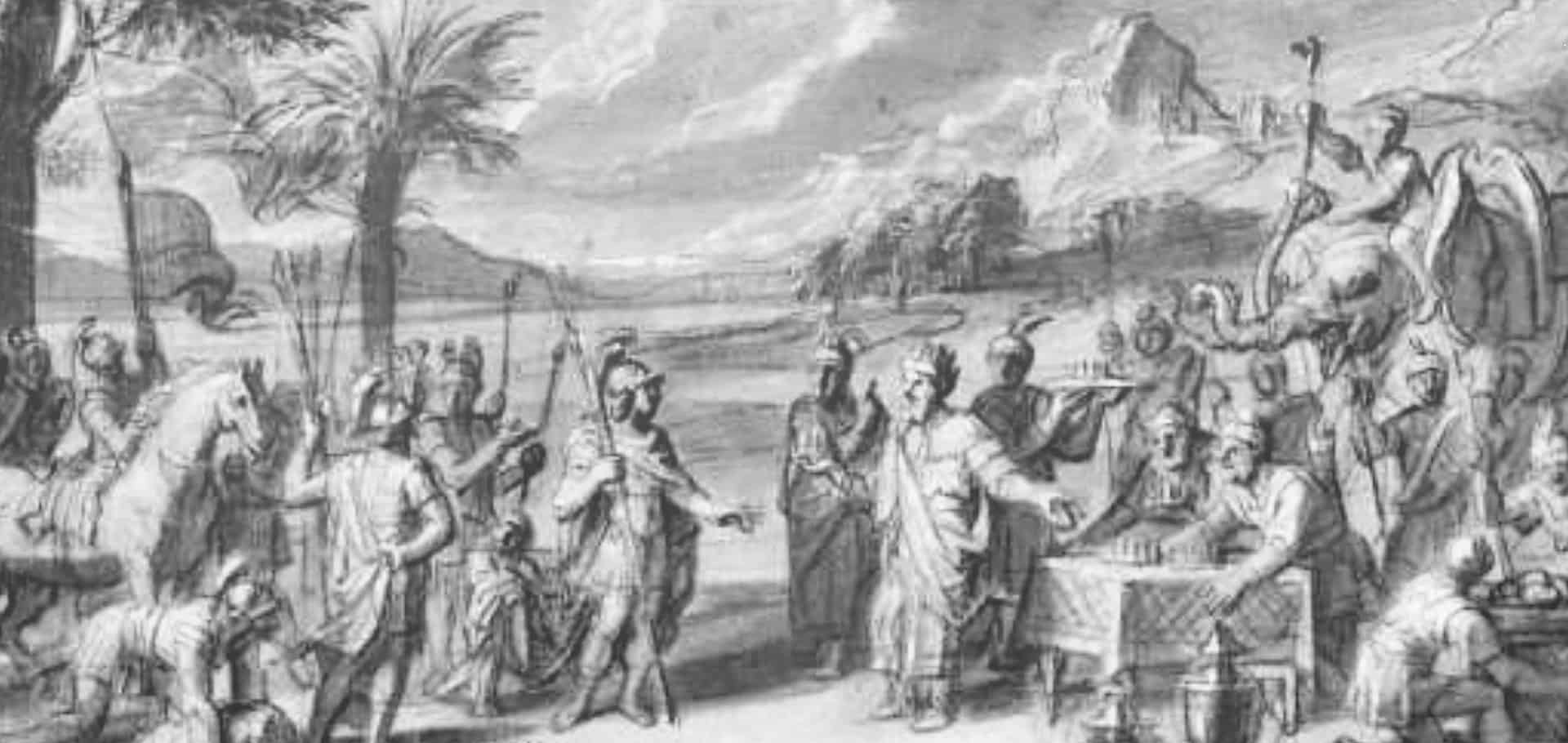
Prince Ambhi of Taxila, who submitted to Alexander while offering him tribute, found himself not only retaining his title but also receiving gifts of his own.
Later on, after King Poru found himself defeated, Alexander asked him what treatment he expected. Poru replied he expected treatment due to his rank, which Alexander granted him. Poru returned home without losing any land to the victor.
Alexander’s army eventually mutinied against continuing the war in India.
Alexander’s army started rising up against him after hearing his plan to cross the Ganges River and advance into the Indian heartland. By this point, the army had exhausted itself over years of war, and the sheer distance they’d advanced left them afraid of what they might find over the Ganges.
They didn’t raise their weapons against their king, though, instead, they simply refused to march. After waiting three days for them to change their minds, Alexander finally gave in and decided to turn back.
A second mutiny later erupted after Alexander returned to Persia.
Another mutiny erupted over Alexander’s decision to pay off all their debts and to send the veterans back home to Macedonia. He also intended to fill in their places in his army with Persian troops. Alexander’s intention for doing so involved giving his veterans a generous retirement for their service while not leaving out his other troops. However, his men treated this as an insult and refused to accept his payment or even obeying his orders.
Alexander responded by promoting several Persians and giving Macedonian titles to other Persian troops. This caused the mutineers to back down and plead to Alexander, who reconciled with his estranged troops by pardoning them.
Alexander’s best friend Hephaestion died after they returned to Persia.
The cause of Hephaestion death remains unknown. Ancient sources, however, claim that Hephaestion died from a week-long fever. He seemed to have recovered, only to relapse after taking a large meal and dying on the same day.
Some historians believe that the incident may have been caused by typhoid fever, with Hephaestion’s large breakfast causing a perforation of his ulcerated intestine. After Hephaestion’s death, his troops brought his body back to Babylon, where Alexander gave it a royal funeral.
Great mysteries shroud the death of Alexander the Great.
Most ancient historians agree that Alexander died by poison courtesy of an unknown assailant. General Antipater was a suspect, out of fear for his life after Alexander planned to replace him as Viceroy of Macedonia. Modern historians also claim that Alexander did not die from poison but from diseases such as malaria or typhoid fever.
Other suspects for the disease that killed him include meningitis or even the West Nile virus. Historians also note that at the time of his death, Alexander’s health had long since declined because of his alcoholism. Studies about the causes of the great conqueror’s death continue to this day.
Baffling mysteries also surround his final resting place.
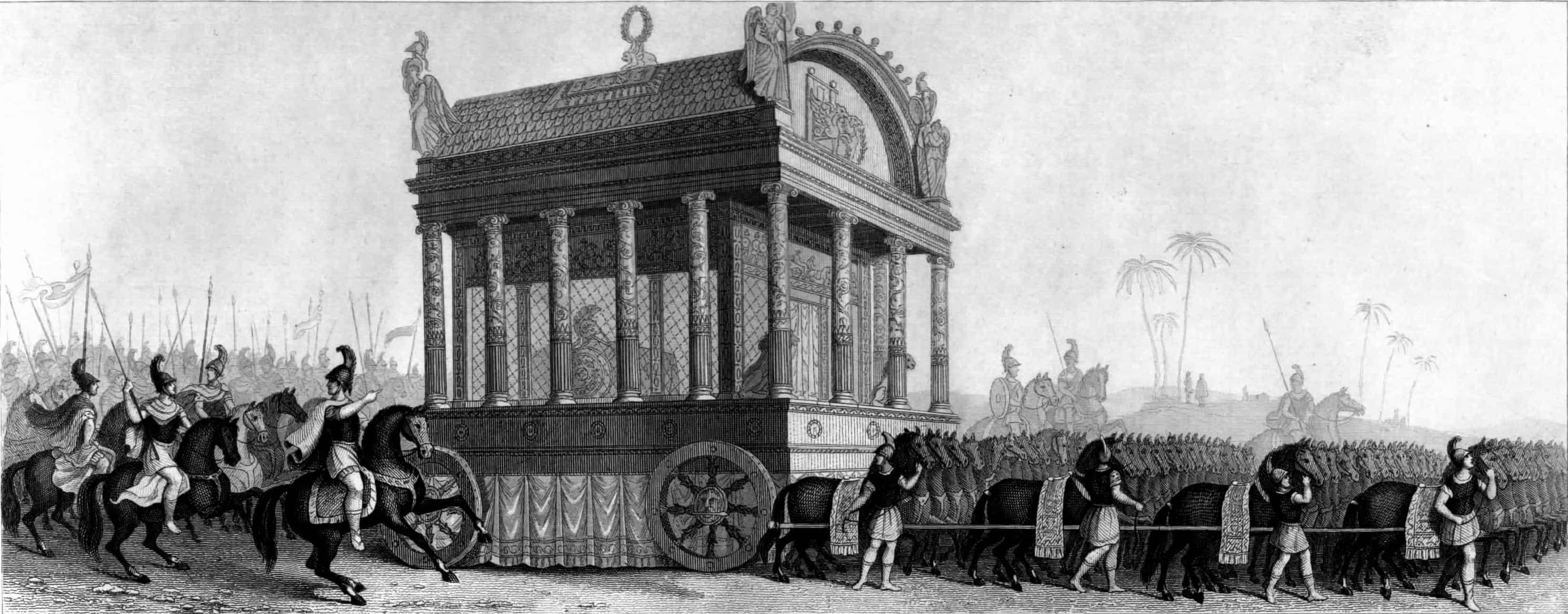
Ancient sources claim that Alexander’s body was put to rest in a golden casket which was encased in an equally golden sarcophagus. It’s also known that General Ptolemy, who later founded the Egyptian Ptolemaic Dynasty, had possession of Alexander’s body.
He buried the dead conqueror in Alexandria, at the mouths of the Nile. Alexander’s body remained there until the time of the Romans, with Julius Caesar even visiting the tomb in 48 BC. The last mentions of the tomb go back to the 3rd Century AD, and the Roman Severan Dynasty. By the 5th Century AD, however, Alexander’s body vanished from Alexandria, and even the Romans were clueless about its whereabouts.
Alexander’s generals and followers divided his empire between them after his death.
It didn’t help that Alexander never named an official successor and that his only apparent heir was still a baby at the time. General Perdiccas tried to set up a regency for Alexander’s son, also named Alexander, but Perdiccas’ was assassinated in 321 BC, which also started 40 years of civil war.
The Antigonids murdered Alexander’s family early on and ultimately succeeded in gaining control of Macedonia. The Seleucids gained Syria, Mesopotamia, and most of Persia, while the Ptolemies gained control of Egypt. In India, the local rulers soon regained independence, only to find themselves conquered soon after by Chandragupta Maurya.
Alexander left unfinished plans due to his untimely death.
Even on his deathbed, Alexander was still keen on planning for his future campaigns. Sources claim that he was drafting a conquest of the Arab Peninsula when he’s on the brink of death. He also considered long-term plans to build a 1000-ship fleet to defeat Carthage. Doing so would allow him to dominate the Mediterranean Sea, and conquer North Africa.
Other plans included construction plans for temples across his empire and even a tomb for his father bigger than Egypt’s Great Pyramid. He also had plans to found new cities in Europe and Asia and to relocate entire populations from 1 continent to the other, with the goal of long-term unity.
Alexander married three times in his life.
Alexander’s first marriage was with Princess Stateira, the daughter of King Darius III of Persia. He did so to gain a legitimate claim to the Persian throne beyond simply the right of conquest.
Later on, he married Roxana of Bactria, but in this case, he did so out of romantic interest. This marriage produced Alexander’s only son. His last marriage was with his first wife’s cousin, Princess Parysatis. And like the first one, this union was only to strengthen his claim on the Persian throne.
Historians have long debated Alexander’s sexual orientations.
In particular, the debate focuses on whether Alexander was a homosexual or bisexual. Ancient historians generally agree that in their youth, Alexander and Hephaestion had a sexual relationship, but it remains unclear if they continued it in their adulthood.
Modern historians who argue that Alexander is a homosexual point to his lack of interest in women. One factor to this claim is that he never used Darius’ harem when he inherited it. Other historians, however, point to Alexander’s three marriages as proof that Alexander was bisexual. They claim that the fact that he married Roxana out of love instead of politics serves as proof for the argument.
Alexander founded many cities with his name.
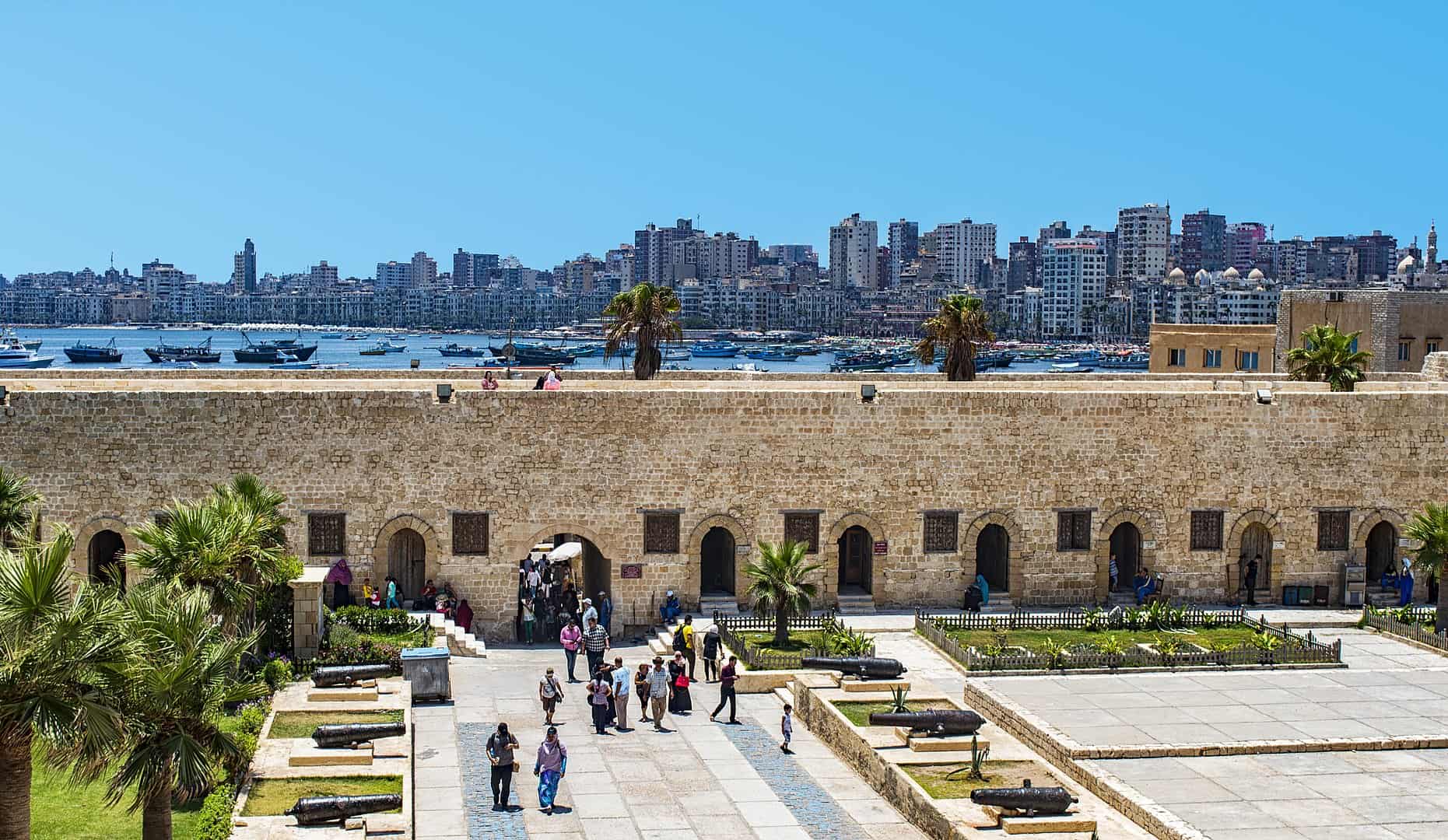
Only a handful of Alexandrias existed by the time of Alexander’s death, but many of them existed only as garrison posts, which all faded away after his death.
Other Alexandrias prospered — most notably the Alexandria at the mouth of the Nile. The Ptolemaic Dynasty made it their capital, and the city soon rivaled Athens as a center of learning and culture. Its lighthouse became one of the Seven Wonders of the Ancient World and its library became one of the biggest in the world at the time.
Alexander spread Greek culture with him during his conquests.
Alexander’s adventures weren’t a one-way street. Asian culture flowed in reverse to Greece and Europe. This led to the transformation of Hellenic culture into Hellenistic culture, which dominated the Mediterranean for centuries before the rise of Rome. Greek philosophy and architectural designs appeared across Asia all the way to India. Meanwhile, in Europe, Asian tastes led to a taste for ornate design and rich living among the Greeks.
The Romans had varying opinions of Alexander the Great.
Many Roman generals greatly admired Alexander, holding him in awe for his undefeated reputation. Pompey the Great adopted the title after Alexander. He even adopted Alexander’s own haircut, and even put the effort to find Alexander’s centuries-old cloak.
When Pompey found the cloak, he donned it as his own. Julius Caesar also styled himself after Alexander, while Emperor Augustus adopted Alexander’s personal seal. Of course, not everyone is in favor of Alexander and that is one great understatement. Republican writers used Alexander as an example of how political power needs checks and balances.
Alexander’s life became a legend centuries after his death.
The Alexander Romance, a compilation of entertaining stories about the romantic escapades in the life of Alexander the Great, was quite popular during medieval times. It tells the story of Alexander’s life, albeit in a glamorized fashion with fantasy elements included such as how Alexander supposedly chained griffins to his throne so he could fly.
Alexander’s legacy in Persia remains a mixed bag.
Zoroastrian literature paints Alexander in a negative light, describing him as accursed for his desecration of Zoroastrian temples. However, the Persian Book of Kings recognizes Alexander as a legitimate Great King of Persia in his own right. The Persian Book Of Kings tells the story of pre-Islamic Persia, from the mythical creation of the world and the dawn of Persian civilization to the seventh-century Arab conquest.
Alexander also has a place in Islamic mythology.
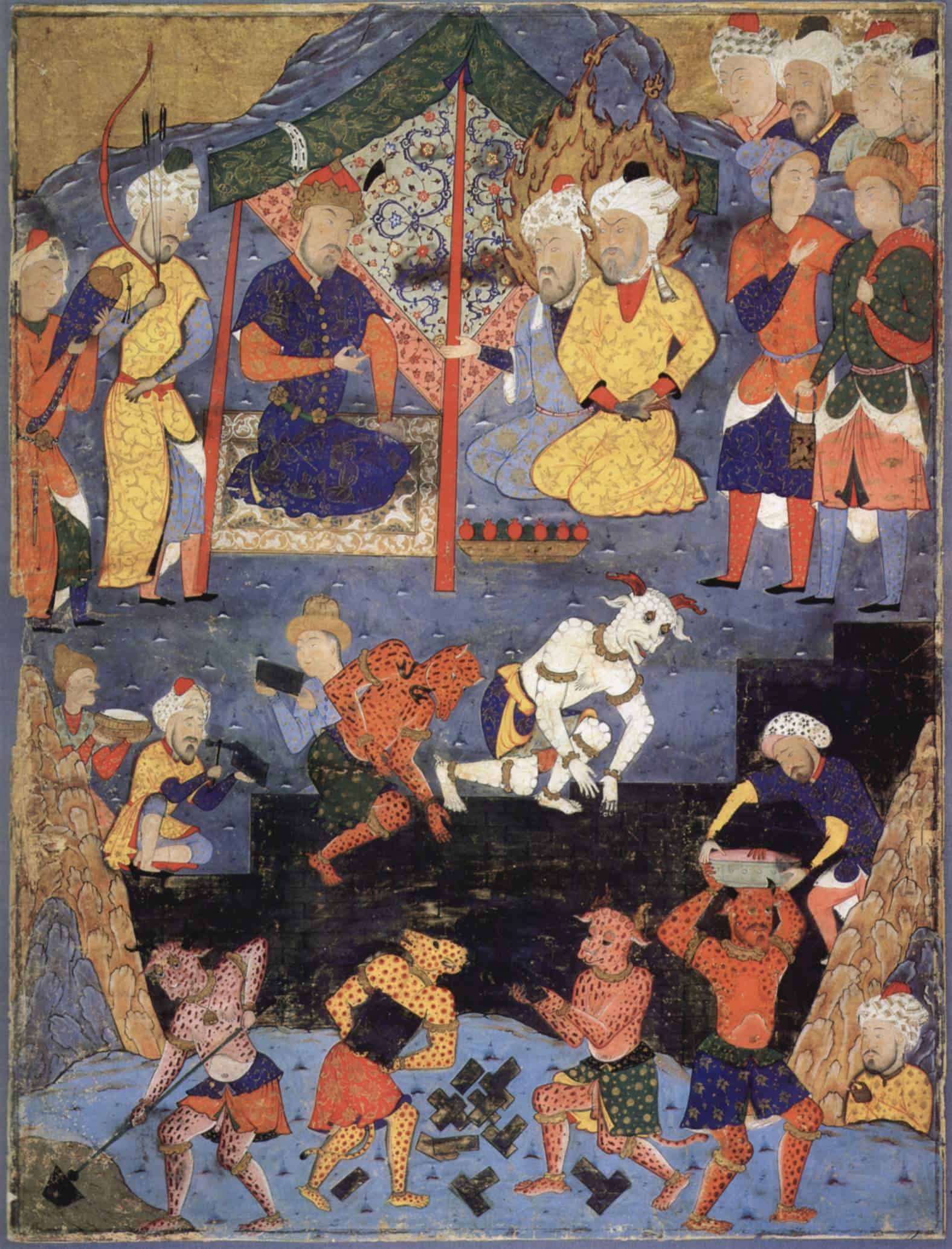
Here’s an interesting example of Alexander the Great facts. They call him Dhul-Qarnayn, the Two-Horned One, who after conquering the world built a great wall to keep the monstrous race of Gog and Magog away. One of the legends has Alexander building a well at the ends of the Earth, before forcing the mountains to bend over it. The howling sounds from the well caused by winds terrified the Gog and Magog, sending them away once and for all. Another legend has Alexander drinking the Water of Life to become immortal, and eventually becoming a prophet in his own right.
Was this page helpful?
Our commitment to delivering trustworthy and engaging content is at the heart of what we do. Each fact on our site is contributed by real users like you, bringing a wealth of diverse insights and information. To ensure the highest standards of accuracy and reliability, our dedicated editors meticulously review each submission. This process guarantees that the facts we share are not only fascinating but also credible. Trust in our commitment to quality and authenticity as you explore and learn with us.
